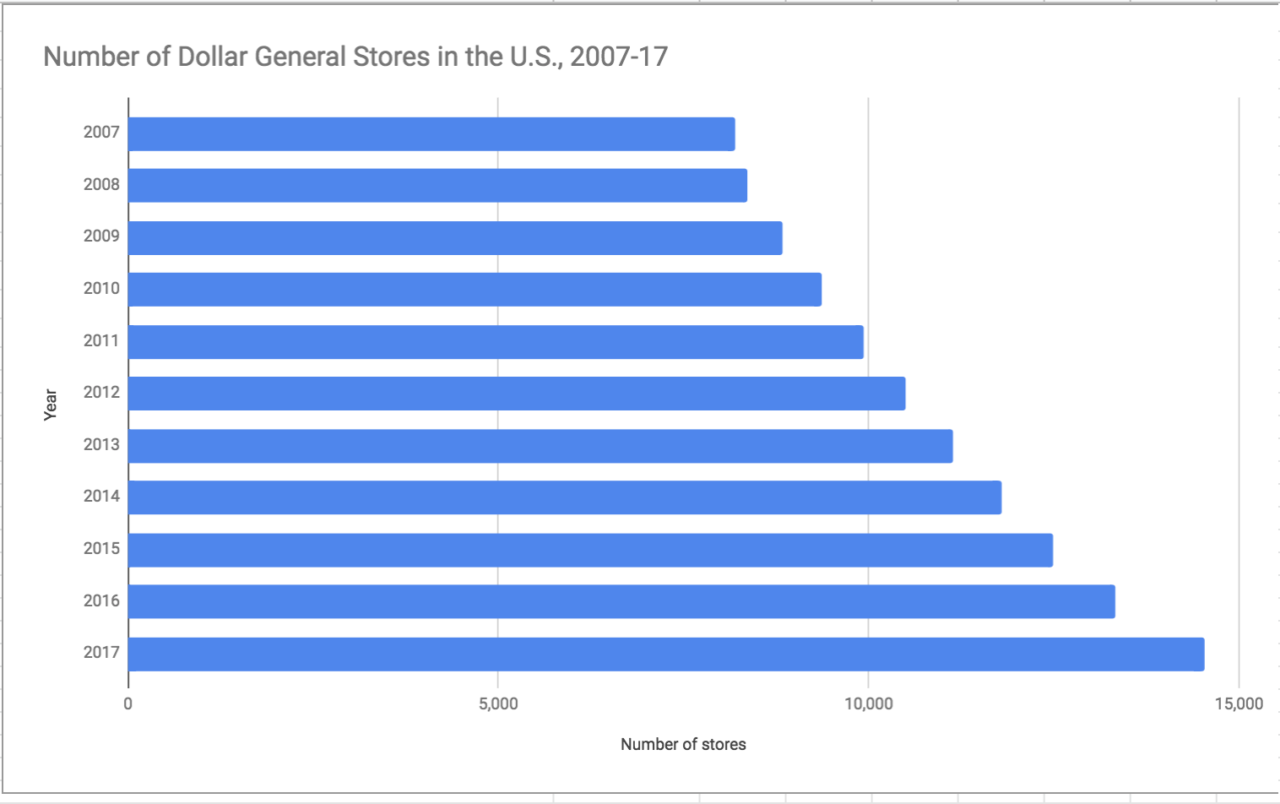When Roy Kus of Olympia, Wash., plans his grocery shopping, the local Dollar Store is the first place he stops before heading to larger supermarkets.
“I’ll buy up about 20 bucks, 30 bucks of food, but in the long run it will save me five to 10 bucks,” he said
Discount retailers might not offer the level of customer service that a neighborhood grocer can, nor do they have all the selection that a national chain provides. But stores such as Dollar General or Dollar Store are proliferating across the country and occupy a niche between local supermarket and big box store. Budget-minded consumers can stretch their dollars further thanks to low prices, while those in more rural areas also benefit from outlet locations that keep them from traveling far for essentials. But the growth of discount stores could be a mixed blessing for consumers .
Even though full-service groceries Walmart and Safeway are just as close to his home, Kus, a retiree, says he needs to be cost-conscious. He appreciates the Dollar Store because he knows that he will find certain items he needs at a low price. Along with canned food, he buys cleaning supplies, paper products, toiletries and party supplies at the Dollar Store.
“I go there and get all the stuff that I know the other store is selling for way more,” Kus said.
Only a few brands are offered, though, and products may even change week by week, as Kus recently noticed.
“I like sweet pickles, and they had them for about two months and then – boom – they’re not there anymore anytime I go in.”
Kus at least has multiple options close by to find pickles. For shoppers in more isolated areas, discount stores are sometimes only one of few retailers for miles selling food and essential household items.
Julesburg is located in the northeastern part of Colorado, near the Nebraska border. The town of approximately 1,200 people has an established local grocer and a Dollar General store, which opened in 2017. To shop at a larger big-box retailer, locals need to travel 30 minutes to Ogallala, Neb., which has both Walmart and Safeway.
Dottie Woltemath, a longtime resident of the area, is pleased that Dollar now provides an additional choice in Julesburg. She purchases specific items at the store, such as paper products, which are cheaper and come in larger packs than at the supermarket. Dollar General also is the best place for party supplies and has good deals on children’s items according to her.
“If you’re looking for a birthday gift for a 5-year-old, and you really don’t want to spend $60 or $70, you can go in there and buy a bunch of little things that kids love for under 20 bucks,” Woltemath said.
A Julesburg neighbor, Sue Carter, manager of the local Colorado Welcome Center, also finds Dollar General useful for items like paper products. For Carter, its later closing time is a bonus. Dollar General has come to the rescue for the occasional evening emergency, like “when I have company visiting and you need something you didn’t have for them, like toilet paper.”
But Dollar General’s entry into rural America is not always welcome. The chain has added more than 10,000 locations since 2001, primarily in rural communities. Some struggling towns, fearing the threat to local businesses, have pushed back to prevent the chain from opening.

And when Dollar General becomes the only retailer in small towns, local consumers might lose in the longer term. The stores’ proximity saves consumers in time and travel, but many outlets are located in areas considered food deserts, according to Jordan Rasmussen, policy manager at the Center for Rural Affairs.
The stores sell food, but not necessarily the type to help communities escape food-desert status.
“It’s boxed goods that are higher sodium, higher salt, higher sugar, which contributes to some of those chronic health diseases that we see in rural areas of the nation. It doesn’t help them improve their diets in looking to living healthier lives,” Rasmussen said.
Both Woltemath and Carter continue to shop for groceries at the local supermarket to support Julesburg businesses and their neighbors. Like many rural areas across the country, Julesburg has a large percentage of older residents, not all of whom are able to travel for essential shopping needs or fresh items.
“We’re a small rural community, and you want to keep your grocery store going,” Carter said.
“When you have a town our size, if those grocery stores shut down, we would be full on out of luck,” Woltemath acknowledged.
But if shopping at discount stores is just one part of a consumer’s habit, taking advantage of them can be an effective way to save without much too much effort, Kus attests.
“I try to pinch pennies, and I don’t use coupons,” he said.